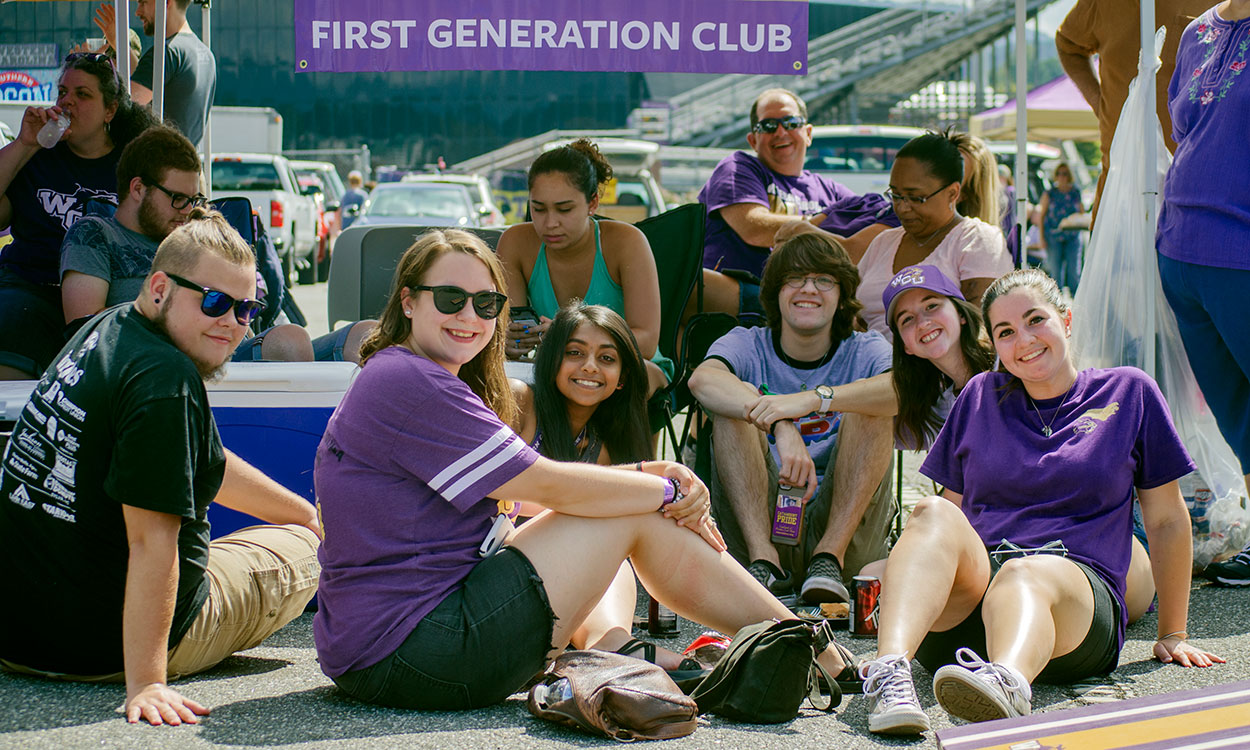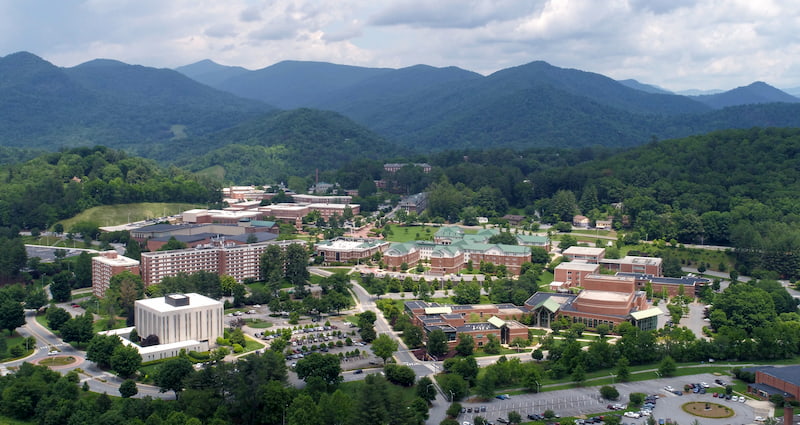MAPS launching advocate program to increase support for first-generation students

Students in WCU's First Generation Club enjoy getting together prior to a home football game.
More than 40 percent of Western Carolina University’s new freshmen and transfer students have self-identified as first-generation college students since summer 2017, says Janina DeHart, assistant director of the university’s Mentoring and Persistence to Success office, commonly known as MAPS.
WCU considers a student to be first-generation if neither parent has completed a four-year degree, even if at least one parent has acquired a two-year degree or some college credit, DeHart said. Students have the option to disclose their parents’ educational history in the admissions process, but final data is collected by MAPS staff during their pre-registration process.
MAPS offers a number of resources, services and programs to enhance the experience of first-generation college students at WCU. Previously, MAPS coordinated a Whee First Mentor Program that paired interested students with faculty or staff volunteers who met with students one-on-one and sought to engage them in campus and community activities. This year, MAPS has adopted a peer mentor model, using junior and senior peer leaders as mentors for incoming students, while also launching the First-Generation Advocate Program as a new initiative to provide a more comprehensive support system for first-generation students due to the large population of those students on campus.
The goal is to have at least one faculty or staff member in each campus department, administrative unit and support office identified as an advocate so that first-generation students know there is someone available who is supportive and understanding of their unique needs, DeHart said. “Often, first-generation college students feel nervous and unsure of how to navigate the college environment and administrative processes. They may not have the cultural capital of someone coaching them through what to expect, what questions they should be asking, or where to look for assistance,” she said.
In order to support this population, each first-generation advocate will be asked to:
- Serve as a resource person in the respective department/office to students who need assistance or have questions.
- Display the First-Generation Advocate symbol (on an office door, wear pin at events such as Open House, etc.)
- Promote awareness of first-generation student needs and perspectives.
- Provide contact information in order to be listed on a First-Generation Advocate campus directory that will be housed on the MAPS website.
- Maintain a working knowledge of campus resources and services in order to refer students effectively.
- Attend at least one designated continuing education training session per year after becoming an advocate.
Faculty and staff who are interested in serving as a first-generation advocate must attend a two-hour training session to learn more about what it means to be first-generation and how to best support these students in their transition to college and completion of a four-year degree. Upcoming sessions will be offered on Friday, Oct. 19, from 2 to 4 p.m.; Tuesday, Oct. 23, from 3:30 to 5:30 p.m.; and Tuesday, Oct. 30 (Advising Day), from 2 to 4 p.m. Those interested in attending a training session can sign up using the following link: https://wcu.az1.qualtrics.com/jfe/form/SV_dnXqyLA6kfLZQQ5
The program will officially be launched as part of First-Generation College Celebration Day, a national awareness campaign scheduled for Thursday, Nov. 8. On that day, there will be a campuswide emphasis on celebrating the presence and experiences of first-generation students, faculty and staff on the WCU campus.
For more information about the First-Generation Advocate Program, contact MAPS at 828-227-7172 or maps@wcu.edu.

